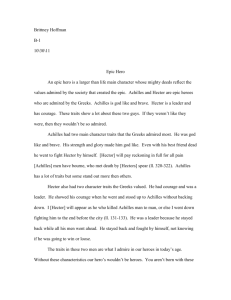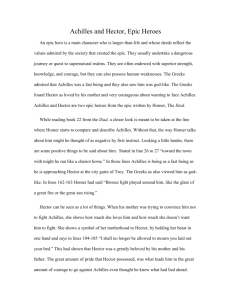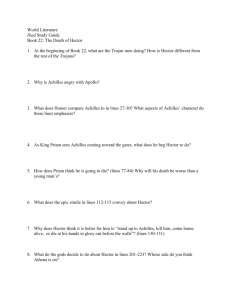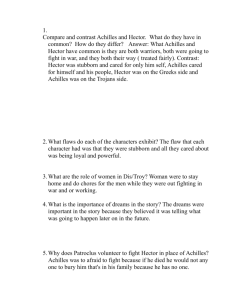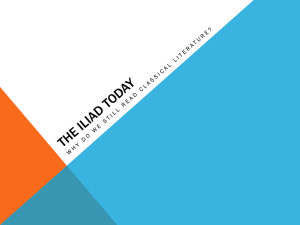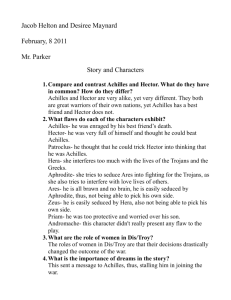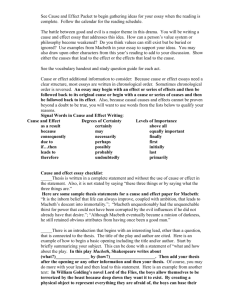Guidelines for Formal Essays
advertisement
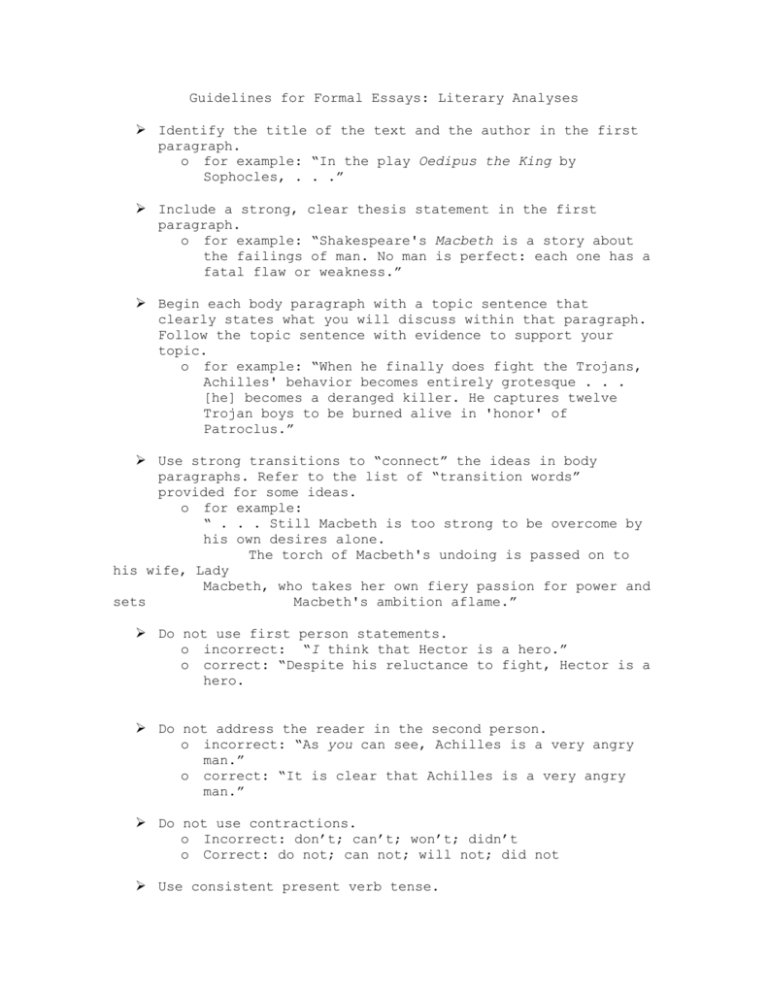
Guidelines for Formal Essays: Literary Analyses Identify the title of the text and the author in the first paragraph. o for example: “In the play Oedipus the King by Sophocles, . . .” Include a strong, clear thesis statement in the first paragraph. o for example: “Shakespeare's Macbeth is a story about the failings of man. No man is perfect: each one has a fatal flaw or weakness.” Begin each body paragraph with a topic sentence that clearly states what you will discuss within that paragraph. Follow the topic sentence with evidence to support your topic. o for example: “When he finally does fight the Trojans, Achilles' behavior becomes entirely grotesque . . . [he] becomes a deranged killer. He captures twelve Trojan boys to be burned alive in 'honor' of Patroclus.” Use strong transitions to “connect” the ideas in body paragraphs. Refer to the list of “transition words” provided for some ideas. o for example: “ . . . Still Macbeth is too strong to be overcome by his own desires alone. The torch of Macbeth's undoing is passed on to his wife, Lady Macbeth, who takes her own fiery passion for power and sets Macbeth's ambition aflame.” Do not use first person statements. o incorrect: “I think that Hector is a hero.” o correct: “Despite his reluctance to fight, Hector is a hero. Do not address the reader in the second person. o incorrect: “As you can see, Achilles is a very angry man.” o correct: “It is clear that Achilles is a very angry man.” Do not use contractions. o Incorrect: don’t; can’t; won’t; didn’t o Correct: do not; can not; will not; did not Use consistent present verb tense. o o Incorrect: “Achilles killed Hector in a fit of rage.” Correct: “Achilles kills Hector in a fit of rage.” Contextualize quotes: do not just “drop” them into the essay. If the direct quote is dialogue, tell who is speaking. o Incorrect: “I beg you, beg you by your life, your parents . . .” o Correct: Hector pleads, “I beg you, I beg you by your life, your parents . . . “ Use MLA format to cite quotes: “Quote” (line number). o Incorrect: “Hector looked up, saw him, started to tremble. (line 125)” o Correct: “Hector looked up, saw him, started to tremble” (125). Finish the essay with a strong conclusion in which you restate your thesis and sum up your supporting evidence. o for example: “Macbeth's small weakness has become his downfall, but many a good man has fallen because of just one fatal flaw.” *****Remember, a literary analysis is not a summary or synopsis of the text. You need to present a strong argument about an element (or elements) of the text and then defend that thesis using direct and indirect evidence from the text.
